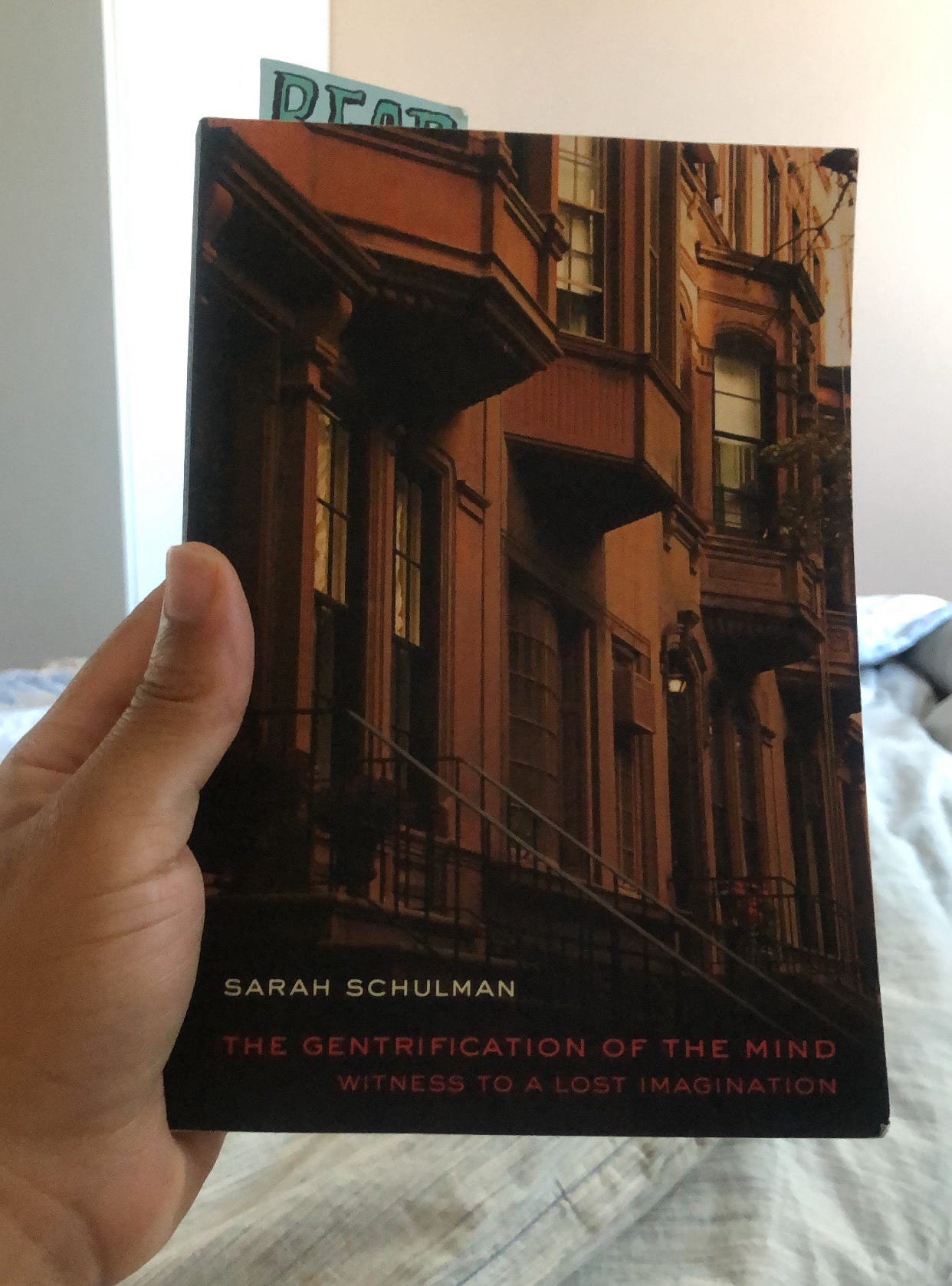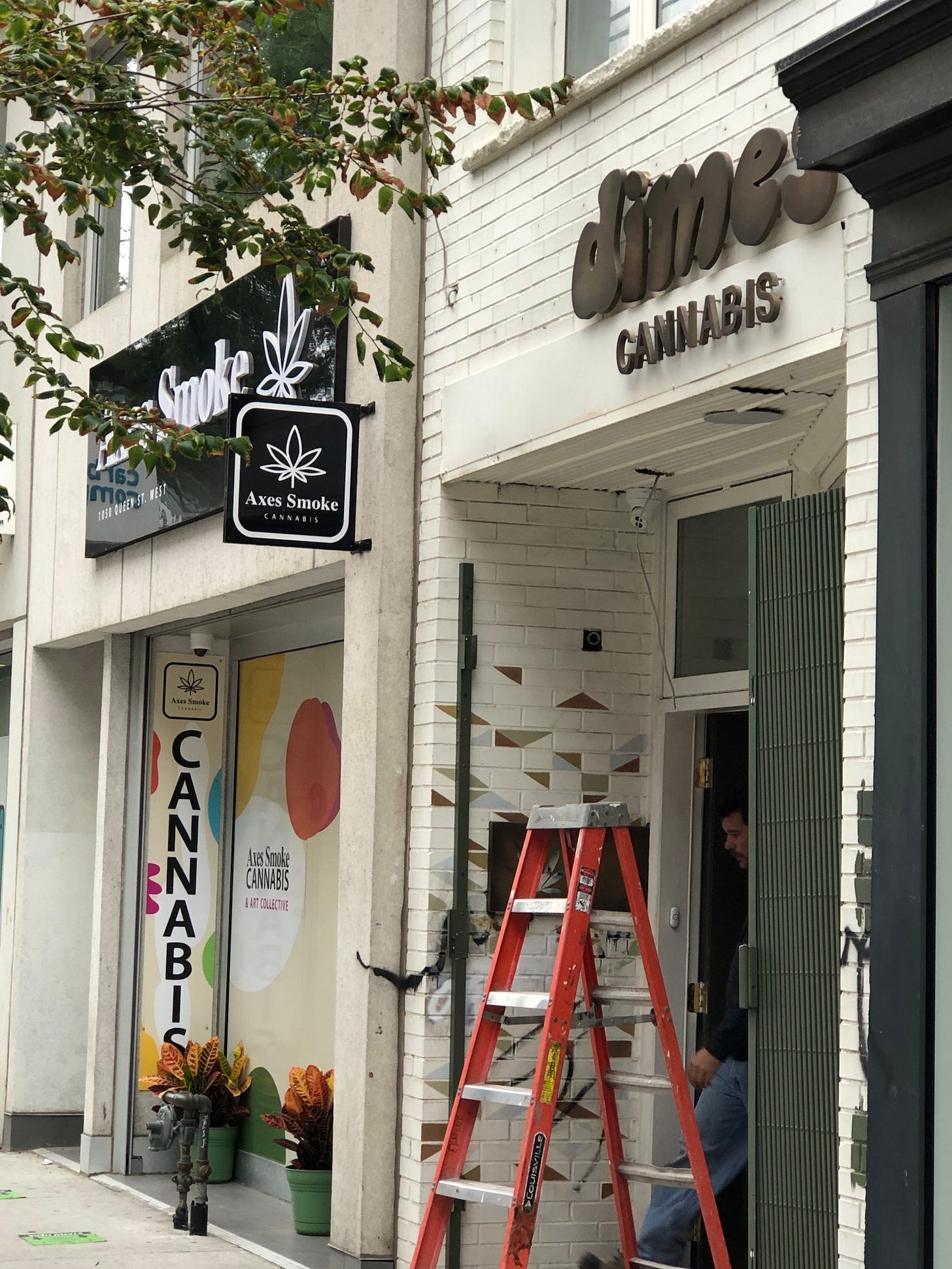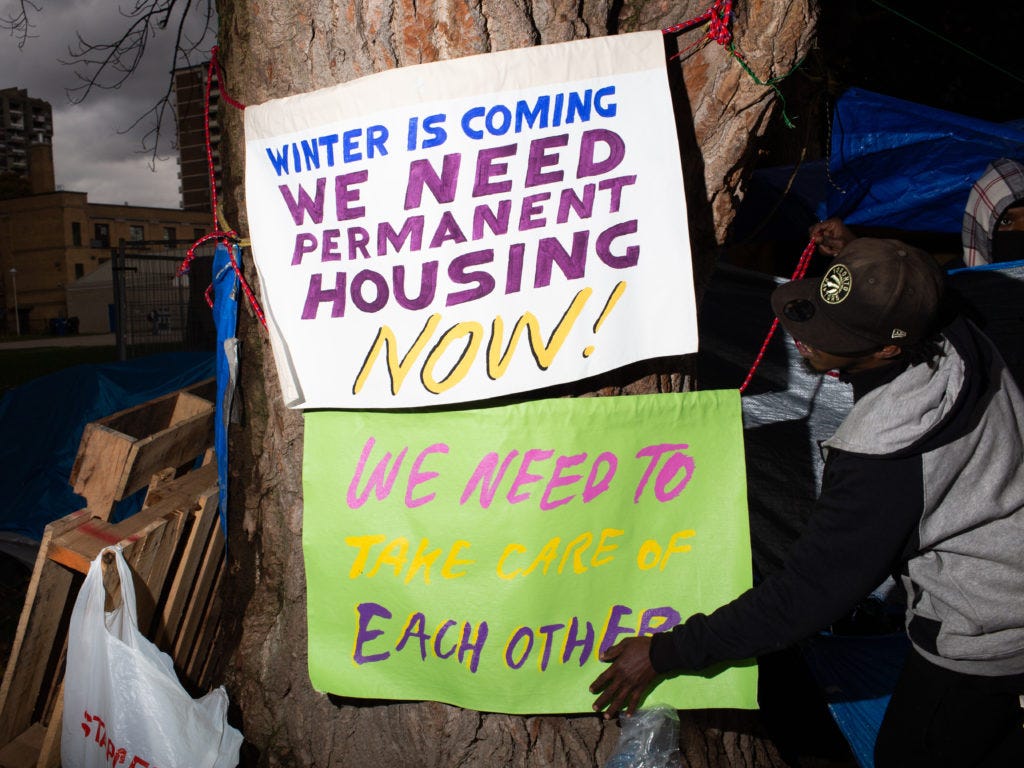The Gentrification of the Mind
On the sociocultural effects of gentrification and the power of community
Several of the books I’ve read over the past year have referenced The Gentrification of the Mind: Witness to a Lost Imagination by Sarah Schulman. All of them seemed to be inspired by it in different ways. This got me fired up to read the book and I wasn’t disappointed when I finally picked it up. Gentrification is a subject that I’ve discussed a lot over the course of my career. “We Move Away” from Afterparty Babies was all about why my friends were leaving Edmonton in droves. One of the examples was because the house where a group of them lived was being destroyed to make way for a condo. “High Rise” from my self-titled album was written from the perspective of a sinister real estate agent selling someone on the yuppie utopian dream of gentrified living.
As my career has progressed, I’ve tried to zoom further out in how I approach subjects like this, moving beyond just showing what is happening and onto exploring the systemic factors and root causes behind why things happen. Schulman does this in her book with staggering detail, particularly focusing on how New York became rapidly gentrified by the AIDS epidemic in the ‘80s and ‘90s. An entire generation of creative artists suddenly disappeared, leaving their empty, previously rent-controlled apartments to be taken by a homogenized group of white suburbanites willing to pay higher rents. The “replacement tenants” were less likely to band together to do things like take part in rent strikes to fight against poor living conditions.
Devouring this book, I saw so many parallels between it and my experiences living in Montreal and Toronto. It gave me that sneaking suspicion that I had seen this movie before. More than just affecting how cities look, gentrification also has a deadening effect on the way that people who live in cities think and act. I always suspected that gentrification had a sociocultural impact but couldn’t fully articulate it or prove it statistically. Schulman makes it clear in her book:
Gentrification “enforces itself through the repression of diverse expression. This is why we see so much quashing of public life as neighbourhoods gentrify. Permits are suddenly required for performing, for demonstrating, for dancing in bars, for playing musical instruments in the street, for selling food, for painting murals, selling art, drinking beer on the stoop…”
“Since the mirror of gentrification is representation in popular culture, increasingly only the gentrified get their stories told in mass ways. They look in the mirror and think it’s a window, believing that corporate support for and inflation of their story is in fact a neutral and accurate picture of the world.”
I was particularly impressed with the way that she shows how gentrified thinking seeps into the art-making and art-consuming processes, making the artist less likely to challenge the audience and the audience less likely to appreciate being challenged. She says this all started with the creation of “performance clubs” where art was turned into a social accessory and selling drinks became the primary focus:
The era of the “performance club” was “a really pivotal moment of change, when art must become something that does not make people uncomfortable, so that they will spend money. The kind of person who is expected to consume art is transformed in the mind of the producer. The people who might very possibly love being expanded by what they see are never given the chance. They’re trained to be narcissistic and unimaginative, even if they could be productive creative thinkers.”
On my new album, the song "Skyline" was inspired by my first walk along Queen Street West after the end of the initial lockdown last year. I emerged from a period of isolation and didn't recognize my city at all. Dozens of shops had closed in a shockingly short amount of time and were all being replaced by weed stores. I saw over a dozen new weed stores on my walk including two next to each other:
It felt like the neighbourhood was encouraging me to sedate myself. This once vibrant street had become even more bland and gentrified than it already was. West Queen West was once a vibrant arts community home to visual artists and bands. I passed Trinity Bellwoods and saw the encampments for the first time. I had seen them in Vancouver, in LA and other places in the States before but never in Toronto. They appeared to be a symptom of a colossal governmental failure to provide affordable housing.
These encampments are also a symbol of the human cost of structural inequality. Around the same time as my walk, my upstairs neighbours in Roncesvalles had just told me they were permanently moving to a different city to escape the pandemic. I thought about the privilege it takes to be able to just leave and get a house elsewhere if things aren't going your way. I thought about who is prioritized in our cities. A healthy city is one that makes room for artists and protects its most vulnerable residents. This quote from Schulman’s book shows how gentrification encourages us not to think that way:
“One of the organizing principles of gentrified thinking is to assess everyone based on what they can do for you, and then treat them accordingly.”
“Gentrification culture is rooted in the ideology that people needing help is a “private” matter, that it’s nobody’s business. Taking their homes is called “cleaning up” the neighbourhood.”
It’s been really inspiring to see the work of groups like Encampment Support Network being led by musicians and artists. People who have largely lost their livelihood due to the pandemic using their time and skills to help others who are even less fortunate. Reading Sarah Schulman’s book, it’s clear that this attitude was the natural inclination of the older generation of artists who knew that we are all in a symbiotic relationship together, one where a dedication to our collective wellbeing is what helps keep the entire city in balance.
The Gentrification of the Mind: Witness to a Lost Imagination by Sarah Schulman is available here
I wrote all about my favourite spots in Toronto that haven’t yet been turned into pharmacies or weed stores for Magnetic Magazine
I had a wonderful conversation about my career, this very newsletter and the Canadian rap scene with Nav Nanwa at New Theory Radio on Sauga 960 AM. You can listen to the podcast on Spotify, Apple Podcasts or just online
My new album Parallel World is out this Friday!!! Read this very thoughtful review from Exclaim! I’ll be having a virtual album release celebration where I play the album and other tracks that influenced the record this Saturday May 1 at 7 PM EST on Twitch, hope to see you there
You can find me on Twitter, Instagram, Spotify and Bandcamp.







